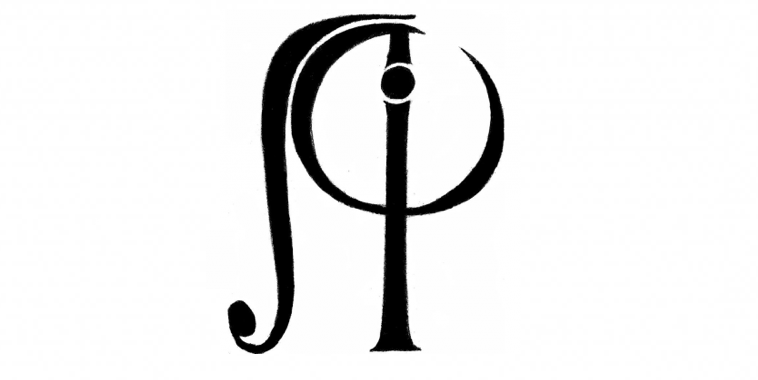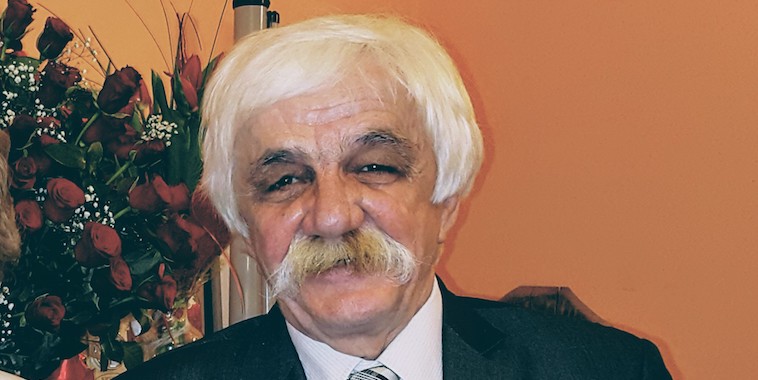15 years ago, the Rusyn-Lemko Philology department was founded
On 1 October 2016, 15 years passed from the beginning of Lemko Philology. The full name of the specialization is: Russian Philology with Lemko-Rusyn language. The studies have been functioning since 2001 at the Pedagogical University of Kraków. It is an important anniversary – not only for the academic environment, but especially for Lemkos whose language was elevated. The institution of the Lemko Philology department will be recorded (or maybe it already has been) in the history of our nation as an event that cannot be compared with anything else over the centuries. It is a real elevation of our treasure – our mother tongue.
Together with the new 2001/2002 academic year, an outright academic chair of Lemko language was established at the Pedagogical University of Kraków. Finally, after several decades of our nation being outlawed, this could happen, thanks to the struggle of Olena Duc-Fajfer, Ph.D., as well as a member of the Polish National Parliament at that time – Wojciech Hausner. Because it was he who was opening any door at which Olena Duc-Fajfer knocked – as Petro Trochanovskyi, the managing director of Besida wrote in the bimonthly before the Philology department’s 15th anniversary
Although the official establishment of the Lemko specialization is associated with the beginning of academic year, the way for the project was being paved earlier. This educational-scientific structure, the only one in Poland, which educates the future teachers of Lemko language, culture and literature, has experienced both good and bad moments within the fifteen years. We have to be proud of it because, like Lemkovyna, it had enemies, was insecure, struggled, lost its people, but it still lasts. Lemko Philology at the Pedagogical University of Kraków is the only such specialization in Poland, developed on the basis of the ethnic minority’s language. It is worth mentioning that the law which covers the Lemko language issue, was established four years after the Philology’s institution.
The original idea is to educate specialists in both philologies. In fifteen years of activity there have been fifty graduates of Lemko Philology. They are specialists in the Russian and Rusyn languages. Although Russian is more commonly used, people who use the Lemko language in their career do not regret it. Among these persons are LEM.fm editors, translators, teachers, Lemko dictionary editors. Throughout the years of functioning, the Philology department has encouraged patriotism and love of their mother tongue in many young Lemkos. Often, they were the ones who supported the introduction of double-language signs in the Rusyn villages, in Lemkovyna, and nowadays they guard them against increasing vandalism.
The scientific structure that deals with Rusyn language in Poland has not only centered on the Lemkovyna region, it has also developed a cooperation with other regions of Carpathian Rus’, as well as outside of it. Thanks to that, students, as well as members of the Lemko ethnic minority, are aware of the broader Rusyn context in which Lemko language and culture are developing “locally”, they are also aware of the dependency of minorities to the state policy and legal system. Cooperation between the Pedagogical University of Kraków, the Institute of Rusyn Language and Culture at Prešov University and the University of Novy Sad in Serbia turns out to be very relevant for Rusyns – it gives them the feeling of relevancy and unity of the standards of Rusyn language. On the basis of the broad cooperation, in 2007 Kraków happened to organize the 3rd Congress of Rusyn Language. Soon after the establishment of the Philology department, in 2004, it organized an educational conference for Lemko language teachers which was aimed at raising the level and the promotion of teaching Lemko language in primary and secondary schools. Two years later, another conference took place, dedicated to a large degree to our contemporary life, probably for the first time, entitled: “Dilemmas of Lemko identity – historical, linguistic, culture and social aspects.”
Another important event for the Philology department was celebration of its 10th anniversary. In 2011, in the Bakalarz student club (Kraków), students, as well as professors, Rusyn activists, politicians and officials of the Polish authorities gathered together. Back then, the whole academic society raised its spirits, looking back at the past success, and looking forward to new plans.
The Philology offers development not only to its students – also to us – thanks to the projects which are organized within research in the field. Nowadays it is often undervalued, but in retrospect, interviews recorded with natural language users may turn out to be priceless. In the end, it is them who, in the era of difficult times for Lemko language and identity, can show us how to speak and think correctly. Current students and past graduates have been dealing with an important issue – revitalization of Lemko songs, reconstructions of which are presented within the Міцне Зіля / Micne Zila project.
The Rusyn-Lemko Philology department in Kraków did not lose. It won the battle for our language, Lemko “me” and still has a strong voice when needed. Unfortunately, it also has some enemies who wish its liquidation. Lemkos need to remember that the Philology department constitutes a very important structure in higher education, it affects the emancipation of Lemko language and culture, as well as allows it to maintain and develop the basic determinants of the Lemko identity. Only this. Or, rather, all this.
Publikacja wyraża jedynie poglądy autora/ów i nie może być utożsamiana z oficjalnym stanowiskiem Ministra Spraw Wewnętrznych i Administracji.
Публикация выражат лем погляды автора/авторів і не може быти принимана як офіцияльне становиско Міністра Внутрішніх Справ і Адміністрациі.
Zrealizowano dzięki dotacji Ministra Spraw Wewnętrznych i Administracji.
© Copyright lem.fm, 2025. Вшыткы права застережены.







